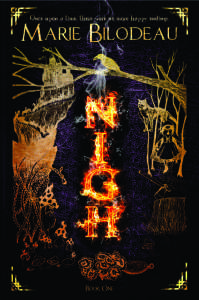It is human nature to compare oneself to others, no matter how unfair that comparison is. I know that I have neither the productivity of Kevin J. Anderson, nor the skill to write the poetic prose of Guy Gavriel Kay, nor the ability to manage massive story lines and milieu like Brandon Sanderson. However, they are all professional writers with many years more experience than I have. Their skills represent goals, markers of achievement that I aspire to. Even looking to my friends who are closer in experience to myself isn’t an apt comparison. We are all different people and very different writers. Ultimately, their skills and successes have no direct impact on my own abilities. They are simply further down the road than I am. I have found that self-comparison is the only reliable and reasonable metric of progress.
As a writer advances through his/her career, growth occurs with every word and work written. I have often heard writers bemoan their old stories, talking about how they would do things differently given the chance. Though, I have written plenty of prose that has made me cringe later, I am more pleased than disgusted by the discovery. My ability to recognize flaws in my old work shows me better than any other metric my own growth as a storyteller.
The original introduction of my first completed novel is a perfect example. Because I largely discovery wrote that book, it took me two full years to complete. Now, I prefer to work in a more focused and deliberate manner, but that initial experience taught me a lot about my own style and craft. Naturally, my skill and tastes grew in that time. My more experienced eyes were able to see that a passage I had thought was filled with compelling characterization and evocative metaphors was little better than navel gazing. I redrafted that particular introduction half a dozen times, and each version was able to leverage my new skills and perspective. By comparing the initial and final drafts, I am able to clearly plot my own growth.
Though there have been times where I have made notes in a manuscript to rewrite or rework a passage during editing, I would not release a story into the wider world until it represented my best work. I have found that it is generally a good assumption that other writers have the same philosophy. What most non-writers have a hard time understanding is that it is almost impossible to track down and eliminate every error in a manuscript, especially since it passes through so many hands during the publishing process.
The way I see it, if I can recognize that some aspect of my old work is garbage, I must have come a long way from the time that I wrote it. Bonus points if I now understand why it is bad and how to fix it. Therefore, my own terrible prose is a marker of my progress as a writer. For me, that’s very motivating. Being a professional writer isn’t a game for those looking for short term benefit. Rather, writers must be continuously growing and learning. After a while, the trajectory of your skill matters more than the absolute value at any particular moment in your career.


